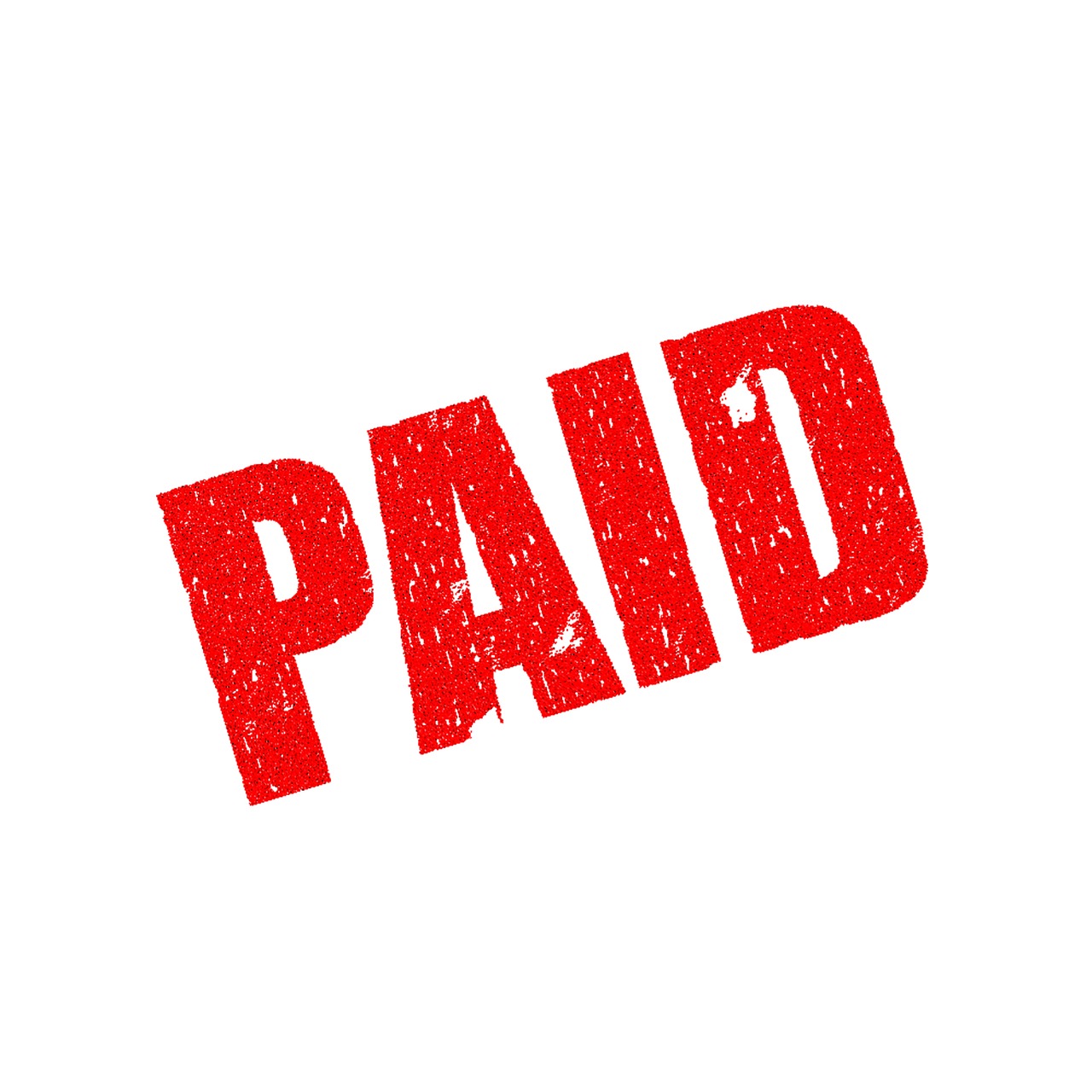When you are in debt, it can feel as though you are in a never-ending cycle of stress and crisis, with little that you can do to get out of the mess you are in.
If you are currently in this place, then it’s time to take action. Whilst the following ten tips might not be a magic quick fix, they will help you to get back onto a more stable financial footing, and eventually, get out of debt.
There may be some aspects of this list that take longer than others to achieve. It doesn’t matter. What matters is that you’re moving in the right direction.
Some of the things on this list you will be able to start today; others may take a month, a year, or even longer to organize. The point is that you have made a start. And once you have started, you’ve begun your journey to a debt-free life.
1. Prepare Yourself Mentally
Well done on deciding you need to do something about your debt. That’s a huge step, and one that is often the hardest to take. Now, you need to prepare yourself for the fact that this is, in all likelihood, a problem that’s going to take many weeks, months and even years of self-discipline and hard work to fix. You will need to make some tough choices and even tougher sacrifices, but always keep your eye on the prize. That will be what keeps you going.
2. Cut Up the Credit Cards
No reputable financial advisor will advise you to manage your debt by taking out more credit cards, even if they offer some good deals. The rewards are there to persuade you to go further into debt, not to help you save money. No financial institution gives away something for nothing.
So make a commitment to put the credit cards away – cut them up if necessary – and not take out any more. They are a temptation to spend more, at a time when you need to be ruthless with your outgoings.
3. Work Out What You Owe
This is going to be one of the toughest parts because you are finally going to have to come face-to-face with exactly how much money you owe. This can be really hard for some people, but it needs to be done if you are to make a plan that works for you, and move forward.
You can calculate your total debt in one of two ways: either sit down with a copy of every credit card statement, loan statement and overdraft figure in front of you (don’t forget anything because the point of this exercise is to have it all there in black and white in front of you). Or, you can use a credit checking app. There are several free credit checking services which will give you a complete overview and breakdown of all of your debt, and they even come with advice on how to improve your credit score and charts to track your progress over time.
Once you have the total debt figure in front of you, you can take the next step.
4. List Everything In Order of the Most Expensive to Least Expensive Debt
After you have worked out what you owe, you need to put the different debts in order of those on which you are paying the most substantial amount of interest on, to those which have the lowest rates. In other words, the most expensive debt, to the least costly. You should always prioritize paying off those debts that have the highest interest rates first, as servicing those debts is costing you the most.
Where debts have the same interest rates, prioritize paying the smallest debts first. Doing so will give you a sense of achievement and inspire you to keep going.
5. Work Out Your Incomings and Outgoings
Now that you have a list of your debts and which ones you need to pay off first, work out your incomings and outgoings. Doing this will allow you to see where savings can be made to help pay off the debt quicker.
If you’re finding it difficult, look at your bank and credit card statements. You’ll no doubt see payments for food and utilities. However, you’ll probably see other payments too, such as your cable TV, internet, gym membership, and paying for your tab on that night out you put on your credit card and didn’t think had cost you that much…
6. Cancel All The Luxuries
Now that you have got everything down in black and white, the next thing you need to do is take action on your spending. Let’s go back to your outgoings. Everything you don’t need has to go. The cable TV with all the channels… could that be axed altogether? If not, could you at least cut down on some of the channels you subscribe to? That gym membership you barely use… that could go. The nights out… you are going to have to be ruthless, remember.
Just cutting back on those three things could save you hundreds of dollars a month. The average family spends about $200 eating out each month. Considering the average cost of eating in is $400 a month, eating out has to go. Are there any other areas you could cut back on? Be honest with yourself. It might not be pleasant, but you are going to need to scale right back even if only for the short term.
7. Give Up All Those Vices
How much do you spend on alcohol, tobacco, and other ‘vices’ such as lottery tickets? The average is around $140 a month, so you need to give up those vices as well. Now, your finances are looking a lot better, with extra money to spend on clearing your debts.
It’s true that a car is not exactly a vice, but it costs a lot more than one. If you own a car, then you are paying a lot for that privilege. If you live in a city with decent public transport, you should consider selling it. And the bonus is you can then use that money to pay off some of your debts. Plus, you have another $400 a month or so that you spend just to run your car to pay off those debts. If you need your car for your job, or you live remotely, you might not be able to live without a vehicle, but could you trade your car for a cheaper, or more fuel-efficient one?
8. Know When to Call It Quits
With more free money every month, you may be able to get a grip on your debts, but even with everything you have given up, you may still come to the realization that your debts are insurmountable. If this is true, there is still one option that could help you get out of the situation you are in. However, you should consider this only as a last resort.
Your option is to declare bankruptcy. Although this is a very unpalatable step to take, there may be no other choice. However, you need to be aware that some debts are not written off even if you do declare bankruptcy – one of them being your mortgage.
However, this is not necessarily bad news. When you declare bankruptcy, you keep your mortgage, and as long as you can continue to make the payments, you can continue to live in your home. Since many of your other debts will be written off, you will, hopefully, have enough money to pay the mortgage because, no matter what, you need a place to stay.
You may also be able to keep your car loan, which you’ll definitely want to do if you need a car. As with the mortgage, you can only do this if you can show you can make the payments but again, with other debt payments wiped out, you’ll probably be able to do this.
9. Work Out What Debts Cannot Be Discharged
There are some debts that you are unlikely to be able to get rid of without paying them off. For a start, student loans are almost impossible to discharge. You would have to prove that there is never going to be a likelihood of you being able to pay them off. To you that may seem true, but a court is unlikely to agree with you.
This is also true of taxes. I’m afraid that if you owe the taxman a suitcase full of $100 bills, declaring bankruptcy will not make that debt disappear. However, before you decide that bankruptcy is your only choice, there is still one more option to consider.
10. Recognize When You Need Some Help
If you feel in over your head, drowning in a sea of debt, with no hope of being able to clear any of it, you must seek help from a professional debt counsellor. Even though you feel like you are in a position where there is no escape, there have been many people before you in exactly the same situation, or even worse, who have not only survived what you are going through but have gone on to bigger and better things, and never looked back. There is no debt problem that there is not a solution for, but it sometimes takes a professional to find that solution for you.
Many charities and organisations offer advice and support to those in debt. They can help you make a plan and will even contact your creditors on your behalf to ask for interest to be frozen and debts to be settled. Many law firms offer debt services and solutions. Look online for practices local to you. Whether it’s helping to settle your debts on good terms or defending you from creditors suing you for what you owe, they can help.

McCarthy Law Debt Settlement are a good place to start if you need to speak to someone.
Remember, it’s a marathon and not a sprint. And you’re moving in the right direction. So don’t lose heart if you’re currently struggling with debt, and seek advice if you need it. There are people there who really can help.
